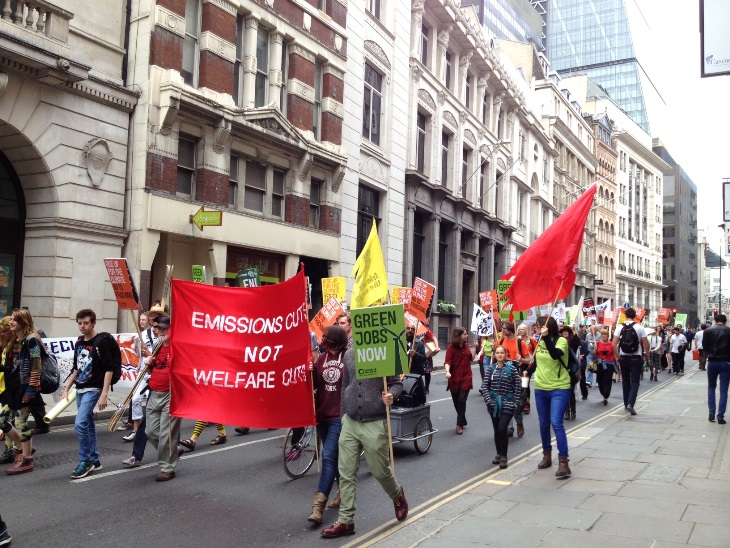Protest has shaped the debate but Paris didn't save the planet
Submitted by Suzanne on Sun, 2015-12-13 20:56

So said Amber Rudd, Secretary of State for Energy and Climate Change
On Saturday 20th June 250,000 people marched together to protest against the impact that ''austerity' - government cuts now and planned for the future are having on people's lives, particularly the most vulnerable.
Activists from the Campaign against Climate Change, Friends of the Earth, Reclaim the Power and others came together in a 'climate bloc' because our chances of avoiding catastrophic climate change are also threatened by these short-sighted policies.
We have to invest in infrastructure across the UK that will give us a cleaner, safer, fairer future: renewable energy, public transport, warm homes for all. In doing this, much-needed jobs can be created. But instead, we are promised five years of cuts: cuts to the home insulation budget, cuts to bus services, cuts to cycling investment, and cuts to onshore wind subsidies, a vital form of clean energy. We can't afford to wait five years: scientists are telling us that urgent action is needed now to cut greenhouse gas emissions. Government must rethink its frantic cost-cutting for the sake of future generations.
